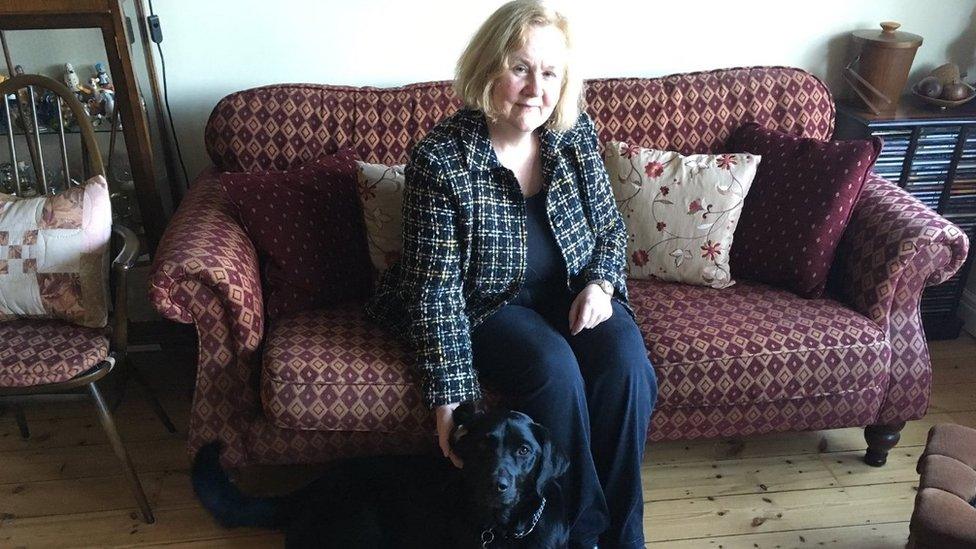Blind woman 'left stranded' by taxis over guide dog
- Published

Madeline Close said it happens to her "at least once a month"
A blind woman says she is frequently left stranded by taxi drivers who refuse to let her travel with her guide dog.
Madeline Close, from Fareham, Hampshire, said it happened to her and her Labrador retriever Deano, "at least once a month".
Guide Dogs for the Blind said 49% of owners had suffered some form of access denial in the past year.
The National Taxi Association said it was unable to comment.
The Equality Act 2010 rules it an offence for licensed taxis and private hire vehicles to discriminate unless the driver has a medical exemption certificate.
Ms Close, who regularly uses taxis for work, said she was "very angry".
"Not only does it delay you, but in the last instance it was raining, so we were getting soaking wet."
'Legal requirement'
She said she has encountered "three types of refusal" from drivers.
"You phone and tell them you're travelling with a guide dog and you're told you have to wait until they can find someone to take you, or a driver arrives having not been told you're with a dog and leaves again, or you end up having a row.
"I've even had one driver turn off the meter and say 'I'm not working'."
Chairman of Fareham Borough Council's licensing panel Pam Bryant said it was "unacceptable" to refuse to take guidance or assistant dogs.
"All taxi drivers that are licensed by Fareham Borough Council have been reminded that it is a legal requirement for them to take guidance or assistant dogs and their passengers.
"The majority of our drivers are extremely helpful and would be happy to help any of their passengers, including the most vulnerable," she said.
Disability awareness
Peter Bungay, from the charity Guide Dogs UK, described Ms Close's experience as "shocking", but said it was an experience many guide dog and assistance dog owners experience across the UK.
He said the charity was currently petitioning the government in a bid to get disability awareness training made mandatory for all taxi and private hire drivers, in a bid to "stop the problem at its source".
The organisation's research showed 49% of guide dog owners had experience difficulties in accessing taxis, shops and restaurants in line with their legal rights.

Guide dogs and the law
Under the Equality Act 2010, external, it is illegal for a private hire vehicle to refuse to take a disabled person because they have an assistance dog, nor can they charge more.
Anyone found guilty of an offence under the act is liable to a fine.
Assistance dogs are defined as dogs trained to guide someone who is blind, deaf, epileptic or suffers a condition which affects mobility.
Drivers can apply to a licensing authority for exemption from carrying assistance dogs, but only on medical grounds.
